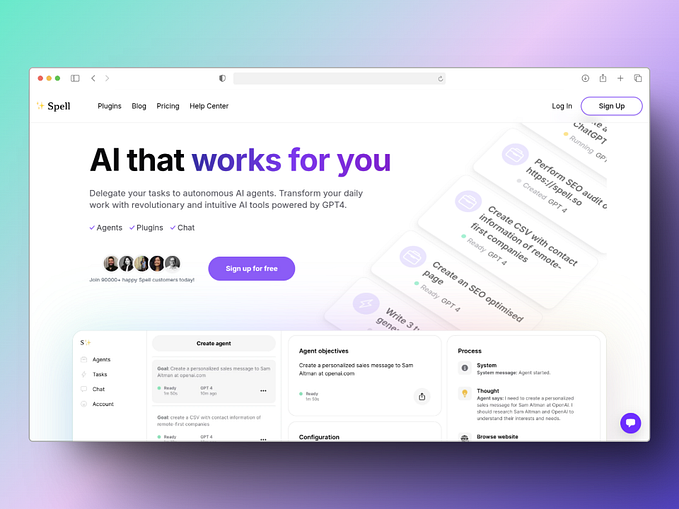From Horseless Carriages to AI: Why We Fear Things that Make Life Easier

There is no award for suffering the most, but most people equate suffering with success.” — Alex Hormozi
Ever feel uneasy when things seem a bit too….easy?
We tend to do that. We’ve always been scared of new gadgets that move quickly or make funny noises, especially if they work way faster than the old ones.
Why do we fear efficient technology?
To find out, let’s look at a few other technologies that, at the time they were introduced, made us feel… uneasy.
1. Automobiles. “Where are the horses?”
When cars were invented, some saw them as dangerous and even devilish.
We feared the noise and speed, and that they would lead to job losses in important industries such as carriage manufacturing and horse breeding.
The term “horseless carriage” itself reflects the initial fear and pure disbelief in the idea of a vehicle moving without the power of a horse.
2. Airplanes. “Are we sure this thing won’t just fall out of the sky?”
When humans finally got their wings, jaws dropped. And it was also scary.
Some thought flying was for the birds, literally. We questioned if humans could breathe that high up. “The air up there — is it even breathable?”
The sheer height had many thinking gravity might call in a favor!
3. Telephones. “Witchcraft on a wire!”
Imagine being able to talk to cousin Trudy across town without even leaving your kitchen. “Sorcery!”
People were mystified, wondering if spirits in the phone lines were making voices travel. Then, we feared phone calls were an invasion of privacy, and then we worried they would make personal visits obsolete.
We were also concerned with potential health impacts of using such a wicked device…nothing new!
4. Industrial Machinery. “The gears are taking over!”
The Industrial Revolution kicked in and efficiency shot up so high
that it totally freaked us out.
The machines were bigger, faster, and stronger than anyone imagined. But then there was the smog and grime it was creating. Factories were loud and the air was so thick it was chewable.
We feared, “Is this the price for all these fancy gears?”
5. Electricity. “Flip a switch, and there’s light?”
The use of electricity initially created fears that it was unnatural, dangerous, and that it could lead to serious health problems.
We also worried about things like electrocution, fires, and other safety issues. (Sometimes fear can be productive.)
But little did we know how much electricity would power progress…
6. Television. “It’s a tiny theater in a box , but will it steal my soul?
“Actors inside a box? Witchcraft!” People couldn’t wrap their heads around it.
A big fear was that TVs were supposed to suck out souls like vacuums. “Don’t sit too close or you’ll catch square eyes!” parents warned, as if eyes could go geometric.
Now, we’re witnessing TV evolve into a synergy of streaming services, where everything is available all at once. That scares us a little, too.
7. Computers. “Digital overlords in disguise”
“There is no reason anyone would want a computer in their home.”
— Ken Olsen, founder of Digital Equipment Corporation, in 1977.
“We’re losing control of our own creations; the computers know more about us than we know about them” was an expression of fear around privacy and the amount of data computers hold.
We also worried that these ‘machines’ would replace human brains, and take away all our jobs (due to automation) and even feared computers would eventually gain control over all of human society.
8. The Internet. “A web without spiders?”
The Internet was the new tangled mess that we didn’t know to avoid or embrace.
We feared it would lead to less face-to-face interaction, more criminal activity, and as always, a loss of privacy. (Again, fear can be founded.)
Let’s not even get started on the whole Y2K thing, when we were convinced computers would throw a digital tantrum and halt all of humanity.
9. AI & Robots. “Helpful or the world’s scariest surprise party?”
With robots that can talk and vacuum your floors, many are convinced they’re plotting our downfall.
Similar to computers, the AI and robotics craze has predictably created worry about job losses, potential for misuse, and the general philosophical implications of creating machines that can think and make decisions.
“What happens when the toys play back?”
Meanwhile, my Roomba just got stuck under the couch. Again.
10. Nuclear Technology. “Taming the dragon”
It lights up cities, but also makes devastating bombs.
Nuclear technology has helped us advance significantly in energy production and medicine, but it understandably also evokes a lot of fear.
It’s like having a pet dragon — awesome, but yikes! 🐲
So, what do we do with our nuclear dragon? Do we lock it up? Do we try to put a leash on it? Or do we learn to coexist, respecting its power, and being ever vigilant of its dangers?
It boils down to a recurring theme in our collective fears: The nuclear dragon can be a friend or a foe, and much of that depends on the
hands that hold the reins.
So, why do we fear efficient technology? With hindsight, we know technology is not good or bad, its impact depends on its use and context.
I also think it’s easier (& human) to fear things we don’t yet understand.
Efficiency doesn’t mean our doom, we do get to choose how to wield it.
If your toaster makes your morning easier, don’t freak out, just spread the jam. And just maybe, keep an eye on that Roomba.










